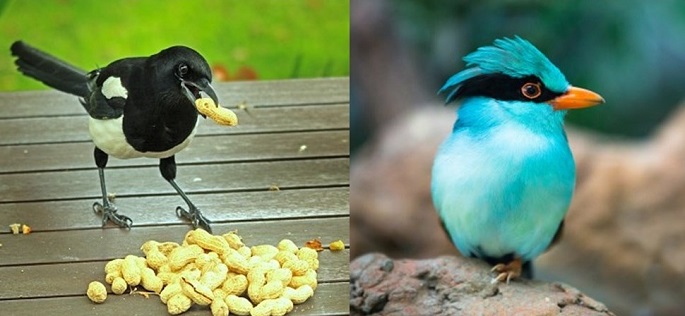Chongming’s one lucky island.
Magpies, regarded by the Chinese as a symbol of happiness and good luck, appear in Chongming, and they seem to be making it their home once more, according to Shanghai Daily.
It isn’t clear, though, how many magpies already nestle in Chongming Island, but seeing their presence offers hope.
Shanghai Daily said that a survey of birds conducted from 1997-1999 revealed that there were only eight magpies thriving in Chongming.
Considering the popular Chinese folk tale, that number wouldn’t be enough to form a bridge for the weaver girl and the cowherd to meet.
Tang Sixian, an ornithologist and professor at East China Normal University, said that magpies “were returning in small numbers” in 2008, reported Shanghai Daily in 2009.
According to the report, “Shanghai’s greening and the successful creation of parks, botanical gardens and leafy oases” paved way for these birds to return.
Magpies help farmers because they feed on pest insects.
Fifty Eurasian magpies or common magpies showed up at the Chongming Dongtan National Bird Sanctuary and Nature Reserve on March 18, according to Shanghai-based American birder Craig Brelsford.
Seventy azure-winged magpies visited Century Park on March 15, he said.
He spotted eight azure-winged magpies and three oriental magpie-robins at the Shanghai Botanical Garden on March 11.
Brelsford went birding at Zhongshan Park on March 7 and chanced upon a couple of oriental magpie-robins.
Bangladesh hails the magpie robin as its national bird.
Because magpies tend to steal shiny objects such as a piece of jewelry, some people would call these birds as “thieving magpies,” according to Chris Welsh in his article, “Saluting Magpies,” at TimelessMyths.co.uk.
“It would certainly be considered bad luck to have an expensive ring disappear from your house,” wrote Welsh.
Then bad luck struck Julia Boaler.
Boaler, from Gleadless, Sheffield, U.K., lost her 5,000-pound (some $7,000 in today’s exchange rate) ring on what she deemed to be through mysterious means, according to a 2008 article by The Telegraph.
She told the outlet that she just placed it on the ledge of an open window of the bathroom before hitting the shower. Then it just disappeared.
She and her fiancé looked high and low to no avail.
Three years passed and one day, the man of the house was pruning an oak tree in their yard. He found the ring he gave to Boaler--now his wife and mother of his first-born child--in a magpie’s nest.
“The bird must have swooped down and nabbed it from the open window,” Boaler said.



























